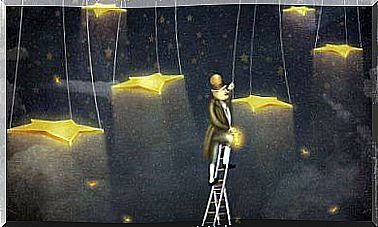When Change Comes From The Irrational: Communitas

All those who have participated in a pilgrimage know that it is something special, but they may not know what communitas is. Walking with strangers and sharing a goal with them leads us to create special bonds. A destiny, a shared path and an unexpected affinity work the magic.
This phenomenon was studied by the anthropologist Victor Turner, who considered that pilgrimages were rituals that were divided into different phases. For him, pilgrimages consist of leaving society and returning, but on the way back nothing is the same. For Turner, the most important thing was the community that was formed, those very special relationships that he called communitas.
Phases of rituals
Rituals consist of three distinct phases, connected to each other. These phases are separation, liminality, and aggregation. In the first phase, that of separation, people separate themselves from the social community. They abandon everyday life, both physically and symbolically. In the pilgrimages, this phase is when the suitcases are prepared, the appropriate farewells are made, and information is sought about the experience that is beginning, etc.

The second phase, that of liminality, is that of the realization of the path, the pilgrimage. In this phase, people move away from normal notions of time and space. Time passes in a different way, they stop looking at the clock constantly, they walk more slowly enjoying the landscape and the moment becomes more important than the future. During this phase, a common motive is also shared with the other pilgrims, to end the pilgrimage or to reach the next point of the trip. This leads to the generation of a common identity.
The last phase corresponds to the aggregation. It is the end of the pilgrimage. It’s time to go home, to the usual routine. The road is over. However, nothing is the same anymore. Pilgrims tend to come back more relaxed and have a new social status. Boring, routine activities look different. The little things become more important and relationships with other people are more pleasant. But what happened?
The communitas
Of the three phases of rituals, the second, liminality, is the central, the most important. During this phase something happens that leads us to change, something that changes our way of seeing and understanding the world, that is, communitas. During the liminality phase, the social preconditions do not exist. The rules and limitations that we have on a day-to-day basis disappear, we enjoy extended freedom. Our social status no longer matters, no matter our trade, our studies or our religious confession. All pilgrims are at the same level, they are the same.
This anarchic state encourages the emergence of communitas. Communitas, according to Turner, is a community spirit. It is a feeling of social equality, solidarity and union. In short, it is a human bond that is made up of non-rational egalitarian ties. The other pilgrims become our equals for no reason. Although in other situations they would never become our friends, they become more than friends. It does not matter what we share or not far from that moment. That precious, the now.
The communitas is very intense. It leads us to make our senses more sensitive and our intuition to be more active. Emotions are running high and the rational loses its meaning. However, this state is temporary and does not usually last long.
Furthermore, communitas can serve to destroy order. This state where the usual social norms do not work can lead us to a chaotic state where destruction reigns. On the contrary, communitas can also lead us to creation. This state can function as an aid to generate new norms and values, in addition to helping us to rescue lost values.

Types of communitas
Turner distinguished between three different types of communitas : the existential or spontaneous communitas, the normative communitas, and the ideological communitas.
Spontaneous communitas appears when a counter-cultural event occurs. When you participate in an event whose rules go against the current culture. Normative communitas occurs when there is a need for social control. This type of communitas comes from the spontaneous communitas and pilgrimages belong to this type. Finally, ideological communitas is that found in utopian societies. People share ideals, a utopia.
While the spontaneous communitas occurs outside the social norms, the social structure, the normative and the ideological are within the social structure. For this reason, spontaneous communitas is the freest, the one that fosters the most changes.
In short, voluntarily leaving the place of residence, crossing new lands and passing through states never experienced leads us to communitas, which overcomes the division between people and leads to social unification. If you have already lived this experience, you already know what to call it. If, on the other hand, you haven’t experienced it yet, what are you waiting for?









